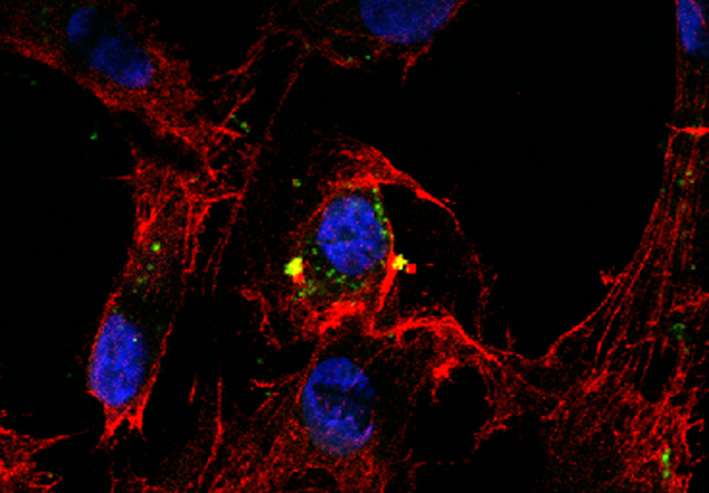Periodontitis and heart disease: Researchers connect the molecular dots

Periodontitis is a risk factor for heart disease. Now a team of researchers has shown that a periodontal pathogen causes changes in gene expression that boost inflammation and atherosclerosis in aortic smooth muscle cells. The research is published ahead of print in Infection and Immunity, a journal of the American Society for Microbiology.
The circumstantial evidence that led to this study was ample. The periodontal pathogen, Porphyromonas gingivalis, has also been found in coronary artery plaques of heart attack patients. And in two species of animal models, P. gingivalis has been shown to cause and accelerate formation of coronary and aortic atherosclerosis. The investigators, led by Torbjörn Bengtsson of the Department of Clinical Medicine, School of Health Sciences, Örebro University, Örebro, Sweden, showed how this happens.
They began by culturing human aortic smooth muscle cells, and infecting them with P. gingivalis. They found that gingipains, virulence factors produced by P. gingivalis, boost expression of the pro-inflammatory angiopoietin 2, while dampening expression of the anti-inflammatory angiopoietin 1 in the smooth muscle cells, with the net effect of increasing inflammation. Inflammation is strongly implicated in atherosclerosis.
"Although unstimulated [aortic smooth muscle cells] produce angiopoietin 2 at a low level, stimulation with wild-type P. gingivalis dramatically increases the gene expression of angiopoietin 2 in [aortic smooth muscle cells]," the investigators wrote.
"Angiopoietin 2 directly increases the migration of aortic smooth muscle cells," said first author Boxi Zhang, a PhD student in Bengtsson's laboratory. "The migration of smooth muscle cells is involved in the pathogenesis of atherosclerosis."
As with ginginpains, tumor necrosis factor (TNF), a human-produced inflammatory cytokine and cardiovascular risk factor, also induces and promotes atherosclerosis via the two angiopoietins. However, their research showed that ginginpains operate independently from TNF, said Bengtsson.
"Our research clarifies the mechanism behind the association of periodontitis and cardiovascular disease," said Zhang. "Our aim is to find biomarkers that can help us diagnose and treat both diseases."
More information: The full study can be read online here.

















